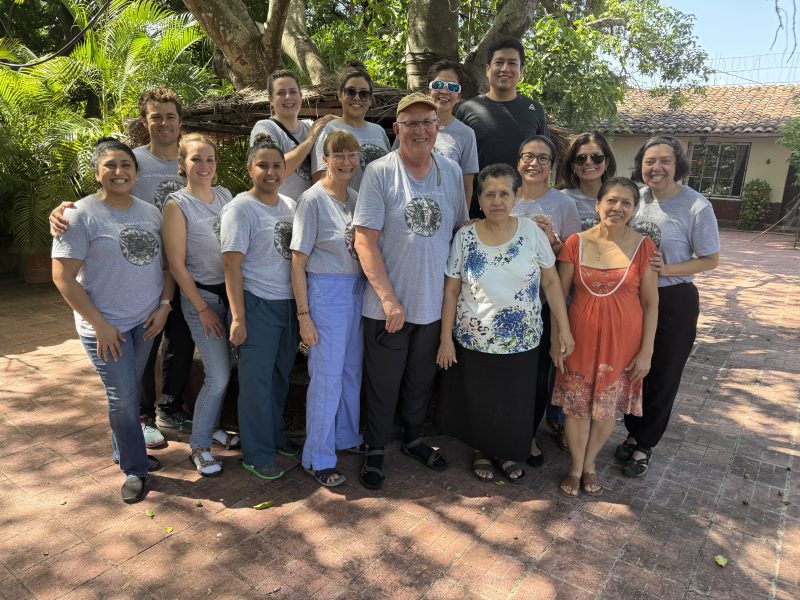College of Nursing Goes Worldwide: A Q&A with Nurse Practitioner Student Billy Miller

How long did you stay in Honduras, and where exactly were you located?
We were in Honduras for eight days, working in local clinics. Most of our work was done in rural clinics just outside of Nacaome.

What was it like providing clinical care abroad? How did it differ from what you’ve experienced at NAU?
It was unique in several ways. The provider team was diverse in background and knowledge, and we worked (and lived) together closely for a relatively short period (one week). This short timeframe highlighted the importance of communication and planning. As students, this privileged us with exposure to a diverse knowledge and experiential base. Additionally, working with limited resources and within a medical system that differs from US healthcare demanded a certain level of creativity and flexibility as providers. It also gave us a valuable perspective on our own healthcare system here in the US.
What did your day-to-day life look like during the program?
We would eat breakfast as a group around 7 a.m. and leave for the clinic shortly thereafter. Most of the clinics were about 20-30 minutes of travel time from where we stayed. We would stay in the clinic until there were no more patients, and most days this would be until about 2-3 p.m. After cleaning up and organizing our supplies, we traveled back to our home. Generally, dinner was around 6 pm, and we would review the patient cases from that day after dinner, and discuss lessons learned, etc. On several nights, one of the providers provided informal lectures on various topics.
How did you prepare to provide services in a different language?
I have a bilingual background that prepared me for this experience.

What did you learn about healthcare access and needs in Honduras?
I learned about how limited the resources are, especially in rural areas. There is a great disparity not only between the U.S. and Honduras, but also between urban and rural areas within Honduras. The medical providers and agencies in Honduras were so supportive of us being there and were willing to help us in any way they could, even with their limited personnel and resources. This experience also offered the opportunity to see conditions that are not common in the U.S., whether it’s because of vaccines that have eliminated certain diseases in the U.S., the specific challenges of waterborne diseases in Honduras, or conditions arising from lack of health care or health literacy that many Hondurans face.
Did you face any unexpected challenges? How were you able to adapt?
The challenges I faced were largely personal learning challenges. The clinic environment was very dynamic, so applying my knowledge in a real clinical setting was a challenge at times. However, having a team of providers there that stepped in to guide us was instrumental in helping me adapt.

What personal and professional skills did you gain from this experience
This experience developed my critical thinking and communication skills and was great practice in working in a very team-based environment.
How will this experience shape you as a future Nurse Practitioner?
This experience will shape me as a future Nurse Practitioner by giving me a greater appreciation for the resources we do have here as healthcare providers in the U.S.
